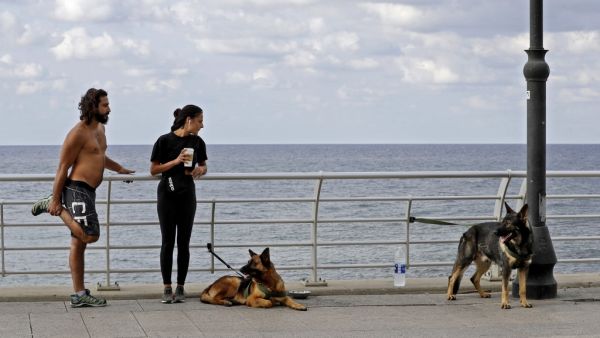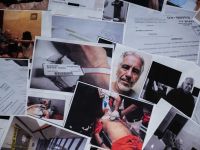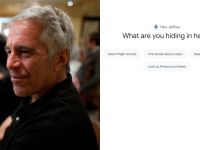Caretaker Prime Minister Hassan Diab announced Tuesday that Lebanon would be going under a full lockdown between Nov. 14 and Nov. 30 in a bid to contain the dangerous spread of coronavirus.
“If the Lebanese people abide by the measures, and we succeed in containing the virus by registering low numbers, then we will have saved the people,” he said in a statement.
Diab acknowledged the economic challenges posed by the lockdown, but held people responsible for the unprecedented number of cases for failing to comply with safety measures imposed by the government months ago.
“If the Lebanese people do not comply [with the measures], and if the number of infections continue to remain high, we will be compelled to extend the lockdown for an additional period,” Diab warned.
Diab also said he has asked the Health Ministry to help hospitals raise their level of readiness during the lockdown to be able to face the virus more efficiently.
In addition to that the caretaker prime minister has also asked security forces to strictly enforce the closure in all regions across Lebanon.
The decision does not include a closure of the airport, sea port or land borders.
"There is a firm decision to confront this pandemic and bring it back under control," Diab said.
Interior Minister Mohammad Fahmi told local TV channel LBCI that the license plate rule would be applied during the upcoming lockdown as well. The movement of cars is restricted to certain days in accordance to the last number of their license plates. Details on the rule are yet to be announced.
Essential sectors such as healthcare, judiciary, banks, factories will remain open, contrary to the previous full lockdown first implemented in March.
The decision came after the Higher Defense Council met at the Baabda Palace to discuss measures recommended by the ministerial committee to combat coronavirus.
The Council also announced that a "national conference" will be held to discuss steps that will follow the lockdown.
President Michel Aoun in the beginning of the session said that the lockdown will exclude industrial sectors and healthcare institutions.
“There is a need to take measures to help contain it [the virus] and mitigate its repercussions,” Aoun said, adding that the decision will enable overwhelmed hospitals to treat coronavirus patients.
Lebanon has seen an unprecedented surge in virus cases over the last month, with daily cases well over the 1,000 mark, putting already worn out hospitals and medical staff under immense pressure, as they run out of capacity.
This article has been adapted from its original source.








